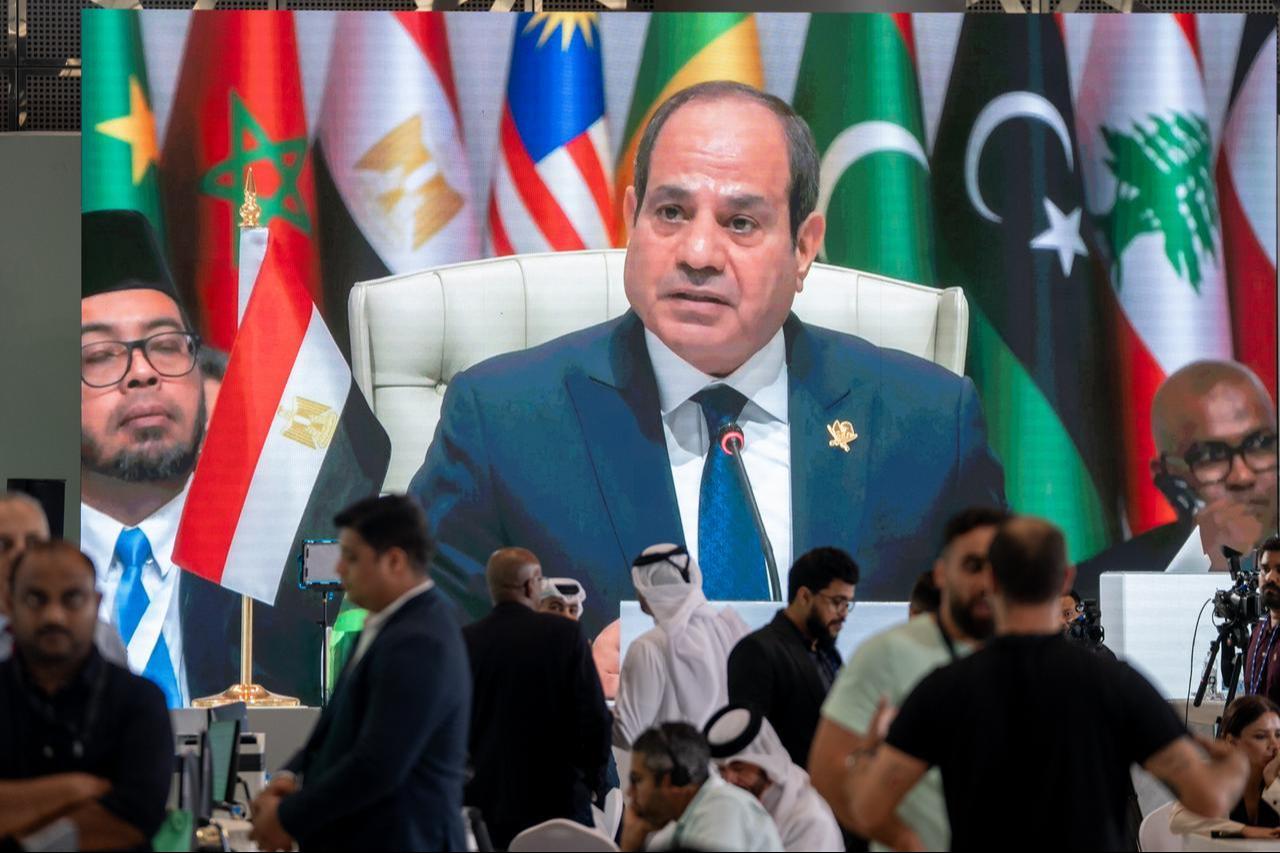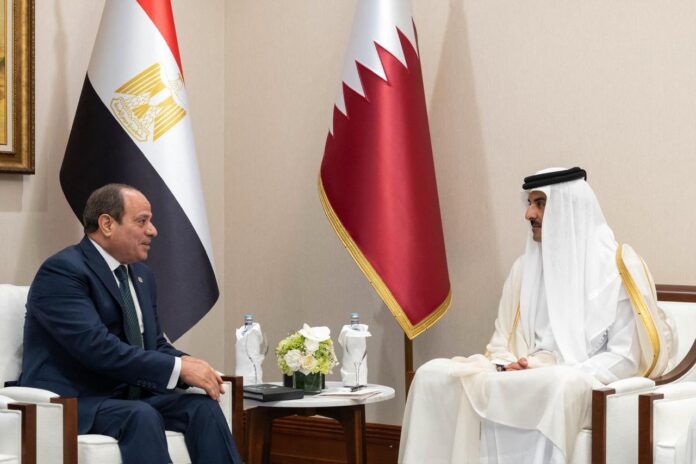Summit in Doha Exposes Regional Divisions
An emergency Arab-Islamic summit in Doha has revealed deep fractures within the Arab world, as Gulf states rejected Egypt’s ambitious plan to form a NATO-style defense alliance. According to Egyptian diplomatic sources, President Abdel Fattah el-Sisi and Foreign Minister Badr Abdelatty proposed a rapid-response military force under the framework of the 1950 Joint Defense and Economic Cooperation Treaty. The initiative aimed to provide collective protection for Arab states against external threats, particularly from Israel, following recent escalations.
However, the proposal was firmly opposed by several Gulf states, with Qatar and the United Arab Emirates leading resistance. The disagreement centered on the question of who should command such a force. While Saudi Arabia demanded the leadership role, Egypt argued that its larger and more experienced military made it the natural choice. The deadlock left President Sisi “deeply frustrated,” according to sources close to the negotiations.
Israeli Airstrike Heightens Urgency

The Egyptian proposal came in response to an unprecedented Israeli airstrike on September 9 in Doha, which marked the first known Israeli attack on a Gulf Cooperation Council (GCC) member state.
In the strike, 15 Israeli fighter jets targeted a residential compound in Qatar’s capital, killing six people, including the son of senior Hamas negotiator Khalil al-Hayya and a Qatari security officer. The attack significantly raised regional tensions and placed Gulf states on high alert.
For Egypt, the event carried particular alarm. Analysts noted that Cairo fears both the possibility of Israel targeting Hamas leaders in Egypt and the potential displacement of Palestinians into the North Sinai region. In a dramatic shift in tone, President Sisi referred to Israel as “an enemy” for the first time since assuming power in 2014, underlining the gravity of the situation.
Limited Outcomes from Doha Summit

Despite the urgency, the Doha summit, held on September 15, produced only symbolic outcomes rather than concrete defense agreements. Leaders of Arab and Islamic countries collectively condemned the Israeli attack and expressed solidarity with Qatar. However, instead of endorsing Egypt’s defense alliance, the summit leaned on diplomatic and international channels to pressure Israel toward de-escalation.
The final communique expressed outrage over Israeli actions but stopped short of endorsing any unified military response. Participants emphasized reliance on U.S. diplomatic leverage and international institutions rather than forming a new Arab-led defense force. This outcome highlights the continued reliance of Arab states on external actors when dealing with regional crises.
Historical Pattern of Failed Unity Efforts
Egypt’s defense initiative is not the first attempt to build a regional security structure. Previous efforts, including a 2015 summit in Sharm el-Sheikh, collapsed amid disputes over leadership and financing. Similarly, the 1950 Joint Defense and Economic Cooperation Treaty—intended to guarantee collective security for Arab states—has remained largely inactive for decades.
Instead, Arab nations have increasingly pursued individual bilateral agreements with global powers such as the United States, rather than developing a cohesive regional defense system. Experts argue that political rivalries, diverging national interests, and competing claims to leadership make sustained military cooperation among Arab states extremely difficult.
Deepening Strategic Divides
The latest rejection of Egypt’s proposal highlights the ongoing challenges of building a united Arab defense mechanism. Gulf states remain cautious about ceding control of military leadership, while Egypt seeks to leverage its large armed forces and strategic location as a basis for regional authority.
Analysts suggest that these divisions could leave Arab states vulnerable to further external threats, as disunity hampers the ability to respond collectively. The lack of a cohesive stance also risks increasing dependency on Western powers to mediate and provide security guarantees.
Looking Ahead
While the Doha summit may have failed to deliver Egypt’s vision of an Arab defense alliance, the debate underscores the urgency of addressing security challenges in the region. With Israeli strikes extending beyond traditional conflict zones, the security of Gulf and Arab nations faces new uncertainties.
For now, Arab leaders appear more inclined to pursue diplomatic pressure and international engagement rather than building a self-reliant military coalition. Whether future crises will force a shift toward collective defense—or entrench divisions further—remains an open question.
Sources: Middle East Eye

